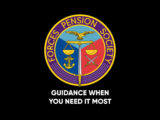
Navigating the rental property minefield
Fiona McCann helps prepare Service-leavers to take on the rough terrain of the rental market.
Many Service-leavers will spend at least some time in private rental accommodation. The following notes are designed to give you a general insight into the sector.
Finances
Determine your budget. Be aware that when it comes to rental prices, they are about as negotiable as a toddler in a sweet shop. You will also be required to part with five weeks rent as a deposit.
Type and location of accommodation
Want and need, can be two different things. Consider the number of bedrooms and proximity to amenities.
Lettings agency spiel
Beware of exaggerated property descriptions used to lure you in, not unlike a Marks and Spencer dinner for two advert. You know the drill, ‘compact and cosy’ actually means you will need to breathe in to squeeze through the living room door once your sofa is in.
Make it yours
Give the landlord reason to choose you above rival property hunters. Arrive early for the viewing, be friendly and give a valid reason for wanting the property. This will help the landlord feel as though you are in this for the long term, not just while you look for your dream home.
Checks
Ensure you can pass all your background checks, including: rental history, credit and proof of income/employment.
Pets
While the Government is pushing for pet-friendly rentals (which is great for animal rescue centres), landlords have a fear of fluffy companions and it can be a negative influence in a competitive market. This may seem unfair, but it’s a reality.
Legal
Lettings agents have their own rules of engagement, disguised as a ‘tenancy agreement’. The most common is a six-month assured shorthold tenancy agreement. This simply means you are agreeing to pay rent for a minimum of six months, at a set fee. Scrutinise every page.
Moving in
Before moving in, your landlord will normally instruct an inventory; a photographed and documented inspection of the property. Examine every page and highlight any unmentioned damage in writing, with accompanying photos by their return date.
You should be given a copy of the following documents:
- Tenancy agreement
- Tenancy Deposit Scheme details
- Energy Performance Certificate (must be E or above)
- How to Rent guide
- Gas Safety Certificate (conducted every 12 months)
- Electrical Inspection Condition Report (conducted every five years)
Throughout your tenancy, you will normally be visited by the agent to inspect the property at least once every year.
Moving out
Inform your agent of your intention to move out in writing and request confirmation. Your agent will advise you on the process. Block jobs and SFA march-outs will have given you a starting point regarding what to expect. Best advice is to avoid wasting your time in attempting to clean the oven; pay a professional (around £80) or take the pressure out of moving day entirely by paying a professional to clean the property. If you hand the property back below the required standard it will come out of your deposit anyway.
The rental market is currently highly competitive, so plan ahead, conduct a recce, and do your research.
About Fiona McCann
Fiona McCann Served with RLC as a Driver, touring Northern Ireland multiple times, Canada and Cyprus. She left to pursue a career in the property sector, surveying homes for mortgage lenders, and is currently studying to become a lawyer.


